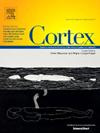衰老和早期阿尔茨海默病中空间导航的认知-运动框架
IF 3.3
2区 心理学
Q1 BEHAVIORAL SCIENCES
引用次数: 0
摘要
空间导航对健康和独立至关重要,并且作为与年龄相关的神经退行性疾病(如阿尔茨海默病)的一部分,空间导航能力显著下降。导航也是受这种毁灭性疾病影响的最早行为之一。衰老和空间导航的神经生物学模型主要关注在健康衰老过程中以及临床前和前驱阿尔茨海默病早期阶段导致导航能力受损的认知因素。在成功导航过程中,对规划和执行运动至关重要的生理因素,如步态和动态平衡,尽管也容易受到神经退行性疾病的早期影响,但往往被忽视。我们回顾了新出现的证据,表明空间导航和功能移动都依赖于高度重叠的感觉系统、认知过程和大脑结构,这些都容易受到健康和病理衰老过程的影响。基于这一证据,我们提供了一种替代模型,主要关注空间导航作为依赖于大脑区域(如海马体和内嗅皮层)的高阶认知功能。相反,我们认为空间导航可能提供了一种与年龄相关的认知功能障碍的生态有效的认知运动表型。我们提出,空间导航的双重认知运动缺陷可能是由神经调节和外周感觉系统的早期变化引起的,这些变化先于内嗅皮层等区域的变化。本文章由计算机程序翻译,如有差异,请以英文原文为准。
A cognitive–motor framework for spatial navigation in aging and early-stage Alzheimer's disease
Spatial navigation is essential for wellbeing and independence and shows significant declines as part of age-related neurodegenerative disorders, such as Alzheimer's disease. Navigation is also one of the earliest behaviors impacted by this devastating disease. Neurobiological models of aging and spatial navigation have focused primarily on the cognitive factors that account for impaired navigation abilities during the course of healthy aging and early stages of preclinical and prodromal Alzheimer's disease. The contributions of physical factors that are essential to planning and executing movements during successful navigation, such as gait and dynamic balance, are often overlooked despite also being vulnerable to early stages of neurodegenerative disease. We review emerging evidence that spatial navigation and functional mobility each draw on highly overlapping sensory systems, cognitive processes, and brain structures that are susceptible to healthy and pathological aging processes. Based on this evidence, we provide an alternative to models that have focused primarily on spatial navigation as a higher order cognitive function dependent on brain areas such as the hippocampus and entorhinal cortex. Instead, we argue that spatial navigation may offer an ecologically valid cognitive-motor phenotype of age-related cognitive dysfunction. We propose that dual cognitive-motor deficits in spatial navigation may arise from early changes in neuromodulatory and peripheral sensory systems that precede changes in regions such as the entorhinal cortex.
求助全文
通过发布文献求助,成功后即可免费获取论文全文。
去求助
来源期刊

Cortex
医学-行为科学
CiteScore
7.00
自引率
5.60%
发文量
250
审稿时长
74 days
期刊介绍:
CORTEX is an international journal devoted to the study of cognition and of the relationship between the nervous system and mental processes, particularly as these are reflected in the behaviour of patients with acquired brain lesions, normal volunteers, children with typical and atypical development, and in the activation of brain regions and systems as recorded by functional neuroimaging techniques. It was founded in 1964 by Ennio De Renzi.
 求助内容:
求助内容: 应助结果提醒方式:
应助结果提醒方式:


